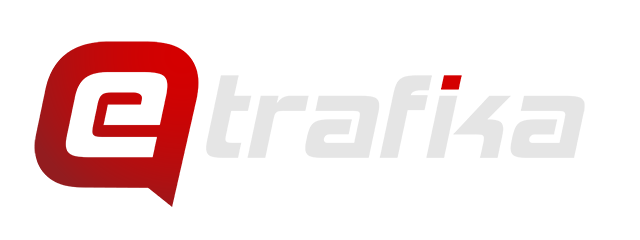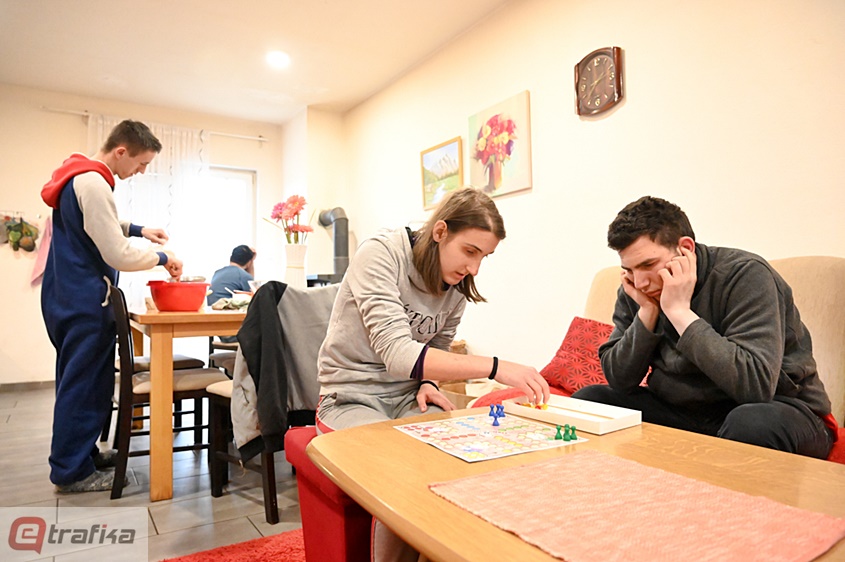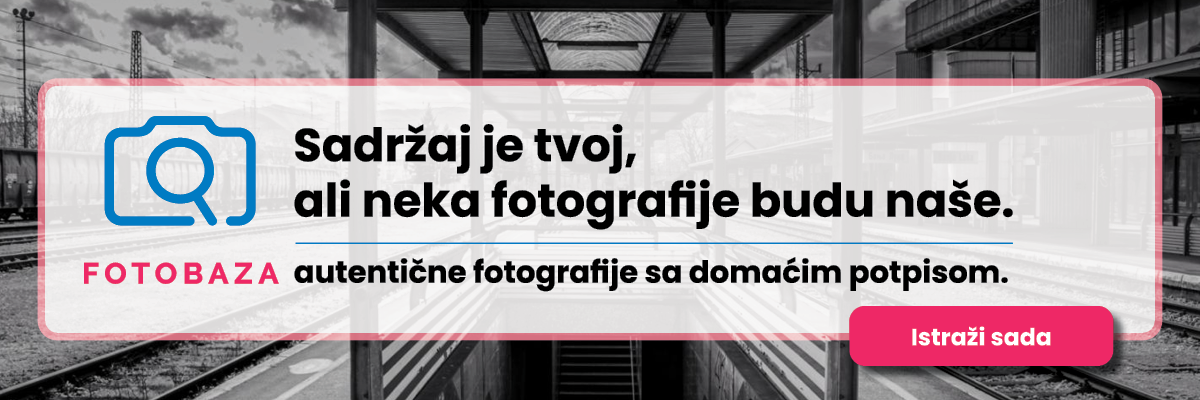Realizing that institutions cease to provide support to young people after leaving children’s homes, the association ‘Our Children’ from Mostar decided to do something for these young people. They are allowed to live in their ‘Halfway House’ for two years, during which they help the young become independent and find a job.
Written by: Vanja Stokić; Photo: Ajdin Kamber
In 2018, the City of Mostar gave the association a house for use in the Vrapčići settlement. There are eight young people living in the house at present. They all have their duties in terms of cleaning rooms and preparing food. Another person cooks every day. He/she needs to prepare lunch for all the people in the house. Today’s menu is beef and potato stew and homemade bread.
‘I’ve been here for almost two years. I’ve learnt how to cook here and many other things’, says Mujo Gačanica (21) while cleaning vegetables.
A few days ago, he started working as a cleaner in a local restaurant. However, his wish is to work with computers.
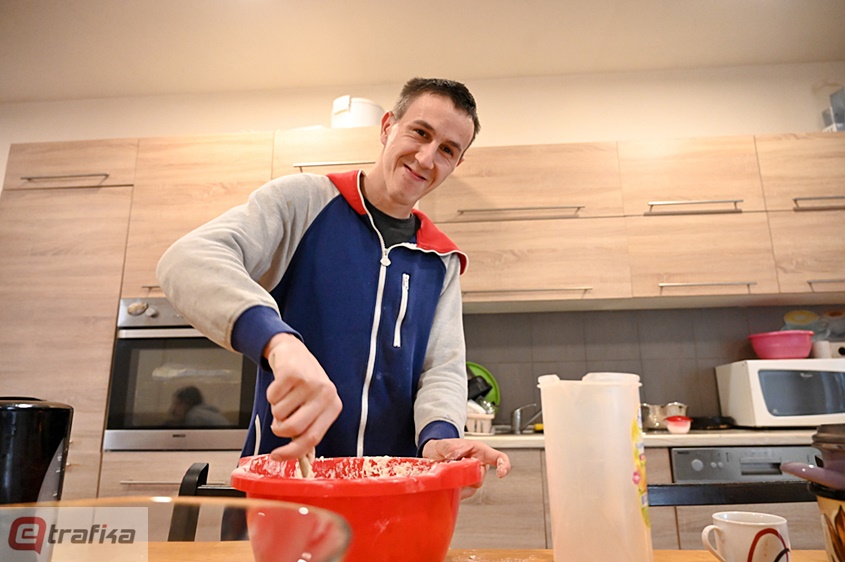
‘I’m kind of. I’m not very good at computers but I’m trying to get better’, says he briefly.
In the meanwhile, Adis Gaš (26) is cleaning the coffee machine. There is a café on the ground floor. It is being used for training at the moment but it may become a real hospitality establishment someday. After he left the Children’s Home, this young fellow lived in poor conditions at Bafo settlement, in a flat given for use by the City. There was neither electricity nor water. He is now one of the tenants of the ‘Halfway House’.
‘I’m not complaining at all. I feel great. We are free at weekends so we can go out. Otherwise, we have our work schedules during the week, we clean and cook. We’ve got internal and external activities’, he says in the break between preparing coffee for other tenants.
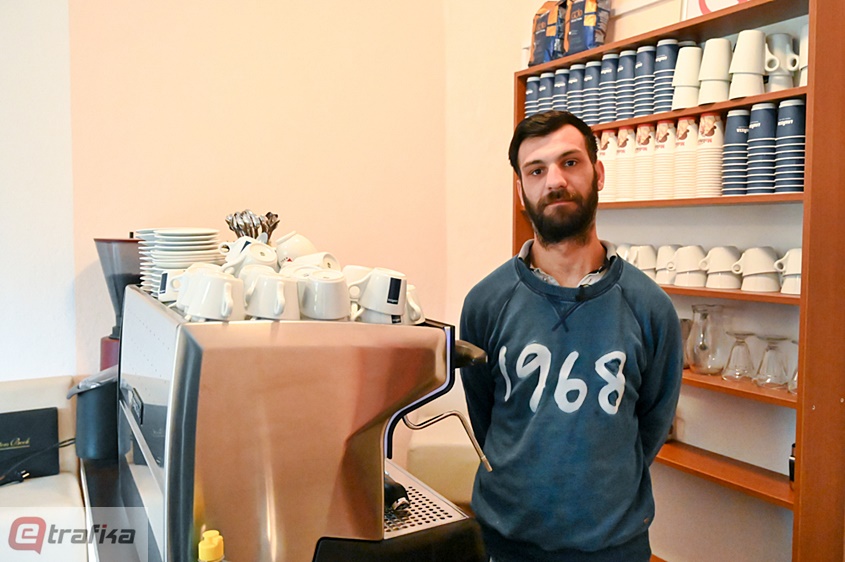
The café is currently being used for training, and the tenants and management would like it to become a business soon. To make a profit and employ the young who leave the Children’s Home.
‘We are striving to employ as many of those young people as possible. We’re going to organize workshops to train them to become bartenders and waiters. We’ll help them in this way to find a bit better job in the local community, by expanding their CVs and work experience. We’ll see then if we’ll be able to create a more profitable business’, says Sunčica Kragulj, the Association President.
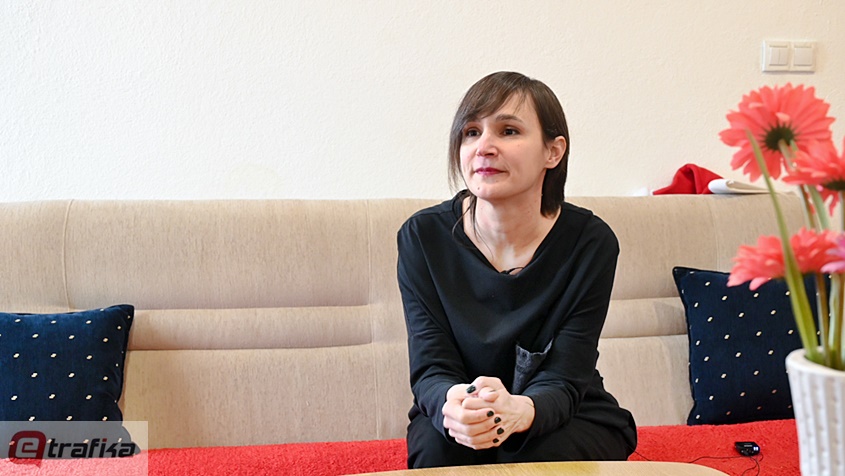
All present tenants have intellectual disabilities. However, this is not the criterion for their selection. Apart from them, the Association assists the users who live independently but have problems paying bills or rent. Sunčica Kragulj points out that the young are not skilful in housework when they come to live in the house. They didn’t develop work habits in children’s homes.
‘The progress is sometimes quite slow but visible. We start with them from scratch. It may take them a year or two, sometimes even longer, to develop a sense of independence and rational reasoning. To learn how to avoid getting into troubles and crises and manage money. So that significant progress can be seen after an extended period. It's not easy, it’s a tough job but we are very proud of our users’, says she.
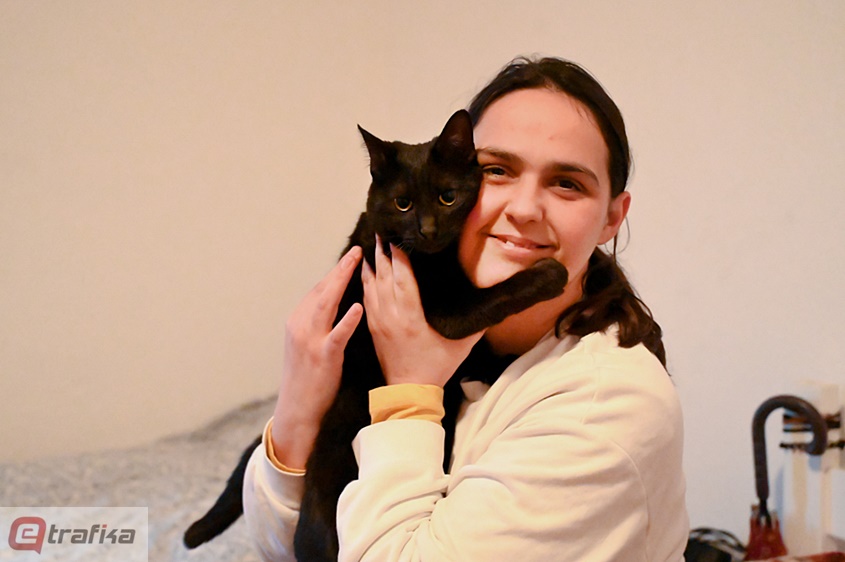
Three female mentors work with the young. They are a kind of substitute parents to them. They carry out work tasks every day, do consulting and even take the young for medical examinations.
‘After completion of primary and secondary school by the adopted school curriculum, the young continue their work through workshops as long as they find the first job. It’s very difficult to find a job for the young having their families and prejudices against children from children’s homes are deep-rooted even today, unfortunately. Especially, if we take into account that these are persons with intellectual disabilities. So, workshops – culinary, jewel-making, drawing, colouring, embroidery etc. continue. They must be productive and keep working’, explains mentor Lejla Pehilj, a pedagogue by profession.
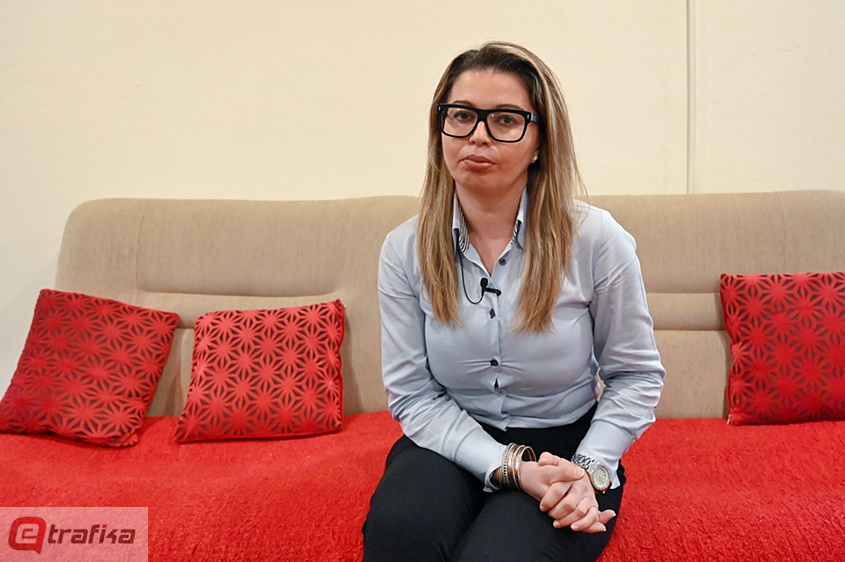
Over time, the Association decided to involve in social entrepreneurship and employs its users in the businesses it sets up. This is how a second-hand boutique ‘Friends’, employing three, was established.
‘We are very proud about it. We employ three young women with developmental disabilities. They have worked here for three years now and we noticed how positive influence it has on their character, personality, personal development and freedom. It’s enormous, enormous, positive influence’, says Sunčica Kragulj.
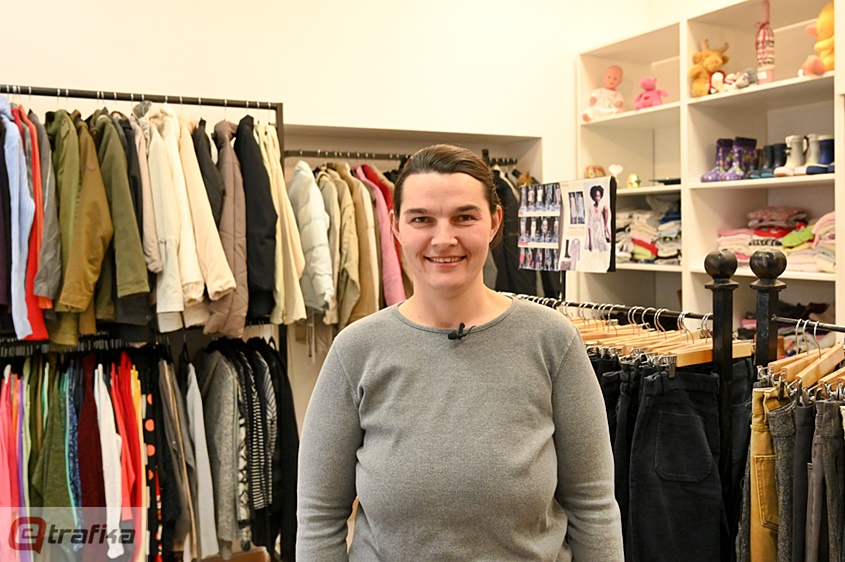
One of the sales assistants in the boutique is Đana Gačanica (32). She says she's happy with this job. She shows us the sale items and quotes their prices. She talks cheerfully about the recent renovation of the boutique, which makes her enjoy her work even more.
‘I’m happy and I feel great. I’m really glad to have a job. There are some nice customers’, says she briefly.
She says that people from Mostar come to the boutique happily. Anyone who wants to help their activity can do this by buying in their boutique or donating sales items. Their fellow-citizens often bring clothes, footwear, toys or jewellery in good condition to be displayed on the shelves in the boutique. An occasional book or a decoration can be found there, depending on donations received.

